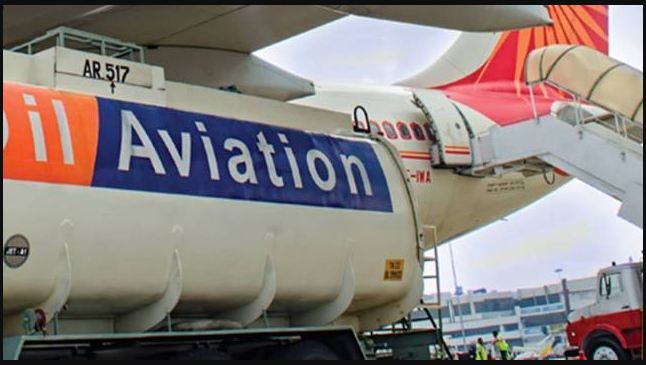Exports of jet fuel to Europe assist with the summer rush and established a new record
According to an analysis of data shared by commodity market analytics and intelligence firm Kpler, India’s export of aviation turbine fuel (ATF) could reach an all-time monthly high in June, and the nation is likely to be Europe’s largest source of jet fuel in July, which also happens to be the peak of the continent’s summer travel season.
ATF exports from India have reached a record high average daily volume of 208,433 barrels (bpd) so far in June. Kpler records show that the 206,871 bpd previous peak occurred in June 2018. Since the voyage generally takes roughly a month, more than half of the ATF volumes despatched from India this month are destined for Europe, where they are likely to arrive in July.
According to an analysis of data shared by commodity market analytics and intelligence firm Kpler, India’s export of aviation turbine fuel (ATF) could reach an all-time monthly high in June, and the nation is likely to be Europe’s largest source of jet fuel in July, which also happens to be the peak of the continent’s summer travel season.
ATF exports from India have reached a record high average daily volume of 208,433 barrels (bpd) so far in June. Kpler records show that the 206,871 bpd previous peak occurred in June 2018. Since the voyage generally takes roughly a month, more than half of the ATF volumes despatched from India this month are destined for Europe, where they are likely to arrive in July.
According to Kpler’s projections, 131,136 bpd, or more than 30%, of the 435,482 bpd in ATF imports to Europe in July are projected to come from India. As Europe avoids Russian crude oil and petroleum fuels due to the conflict in Ukraine, Indian refiners, particularly export-focused private sector giants Reliance Industries and Nayara Energy, have emerged as important providers of refined petroleum products to the continent. It’s interesting that this is happening at the same time as Indian refiners are buying up cheap Russian oil, giving the impression that goods made from Russian barrels may be travelling through India to reach European beaches.
According to the Kpler statistics, India contributed the most to the deliveries of jet fuel imported into Europe in April and May as well. However, in June, volumes significantly decreased while imports from Kuwait showed a robust increase.
The month of July falls in the middle of the June through August summer travel season in Europe. The continent typically has increased travel demand at this time, which leads to an increase in jet fuel consumption. According to recent data on jet fuel imports into Europe, Kuwait, India, South Korea, the United Arab Emirates, and Saudi Arabia are the continent’s main suppliers of jet fuel.
Lead Crude Analyst at Kpler, Viktor Katona, claims that from the perspective of Indian refiners, the increase in jet fuel exports from India is timely. “The monsoon season has historically hampered domestic fuel consumption in India, so this (high ATF export quantities) is really helpful to Indian refiners. Therefore, having many export markets aids in maintaining high refinery run rates, according to Katona. In India, demand for refined goods and transportation fuels decreases during the monsoon because some sectors see a reduction in production owing to the rains, which in turn reduces demand for refined products and other petroleum products.
As of March 4, when the Indian government eliminated the cess on jet fuel exports, there are no restrictions on the fuel’s exports, according to Katona. In order to collect super-normal profits made by oil producers and gasoline exporters due to the rise in global oil prices and fuel margins, the government began enforcing windfall gains taxes through cesses on domestic crude oil and exports of refined fuels, including petrol, diesel and ATF, from July 1, 2022.
Despite being the third-largest consumer of crude oil in the world and relying on imports for more than 85% of its oil needs, India is a net exporter of petroleum products due to its higher than necessary refining capacity of 250 million tonnes annually, or roughly 5 million bpd. India is now playing a more significant role in the global crude oil and refined products supply map as a major refining hub that has increased purchases of discounted Russian oil.
In spite of the initial annoyance of the West over India’s increasing purchases of Russian oil in the wake of Moscow’s invasion of Ukraine, major Western nations like the US have come to terms with the growing flow of Indian refined goods to Europe. The key reason for this, in their opinion, is that despite Russian oil and goods being rejected by many nations, refiners in nations like India are allegedly guaranteeing that the world market for oil and processed products is balanced and adequately supplied.
In fact, according to a number of experts, the achievement of price limitations on Russian oil and refined goods imposed by the G7 countries and their allies without triggering a shock to the global supply chain depends on increased purchases of Russian oil and expanding exports of petroleum products from nations like India to Europe.



